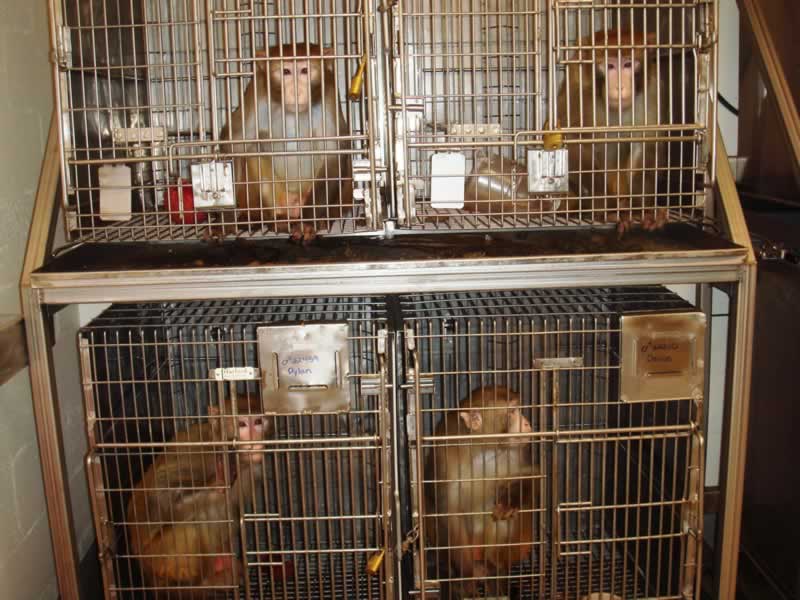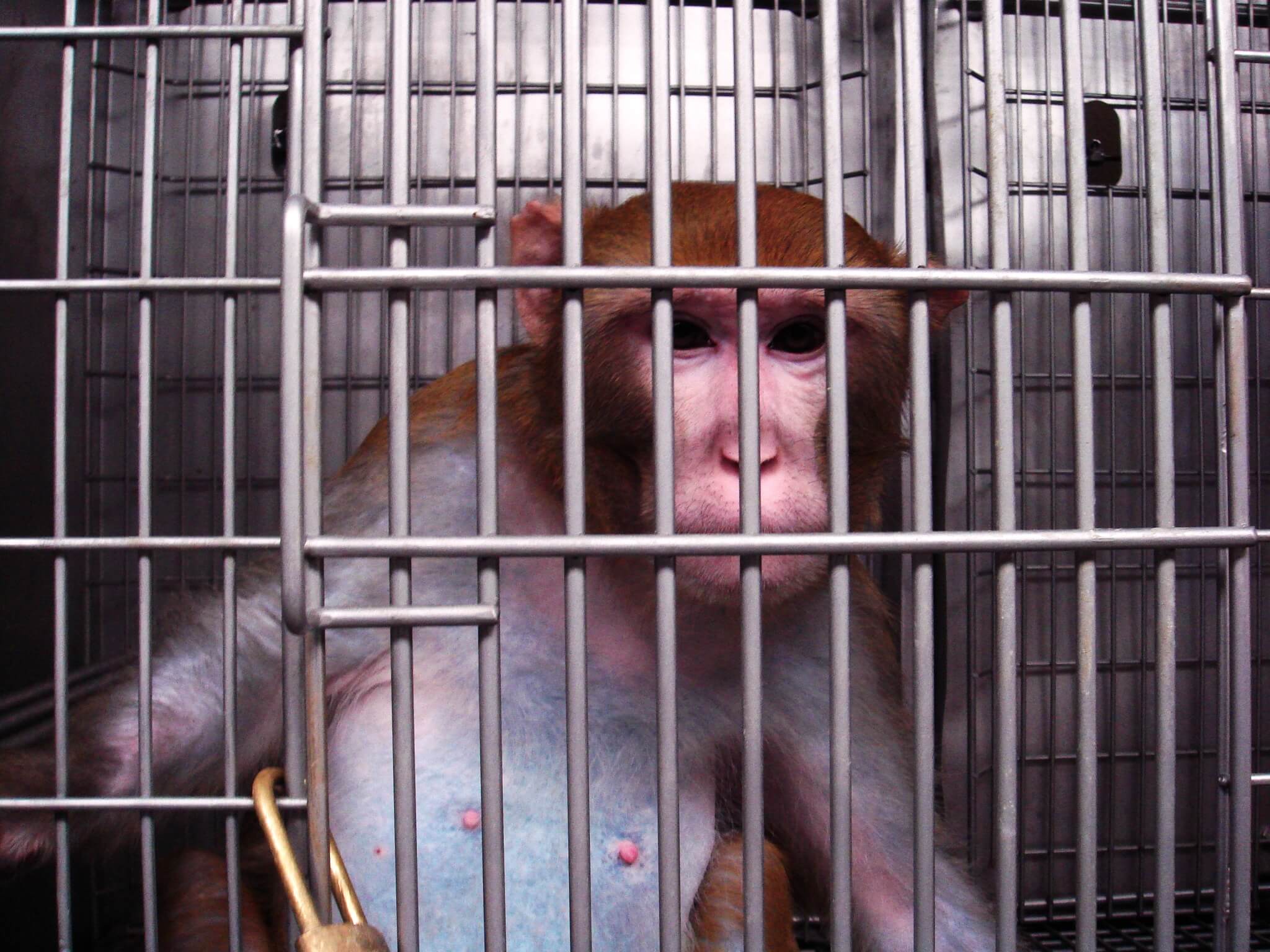PETA Urges Federal Agencies to Investigate Alarming Conditions at Emory and OHSU
PETA has uncovered that staffers at the primate centers of both Emory University and Oregon Health & Science University (OHSU) have left monkeys in cages that haven’t been sanitized in weeks—a violation of the federal Animal Welfare Act that increases the risk of spreading diseases.
Blaming staffing shortages, Emory and OHSU have admitted that they are unable to comply with this basic animal welfare standard.
In response, PETA is sounding the alarm and writing to the U.S. Department of Agriculture (USDA) and the National Institutes of Health (NIH) to say, “No more monkeys!” If the NIH-funded national primate research centers—including those at Emory and OHSU—can’t care for the number of monkeys they have in compliance with federal animal welfare standards, they must scale back. These meager standards already represent the bare minimum level of care these animals need.
The failures at Emory and OHSU are due, in part, to staff shortages—which is not an approved reason for which a facility can be granted an exception to extend the length of time between sanitizations. What’s more, staff shortages could easily contribute to other problems, such as insufficient daily health checks and inadequate provision of food and water.
These facilities must not be permitted to continue breeding or acquiring monkeys when they have already demonstrated that they have inadequate staffing to meet the standards mandated by federal law. Not having adequate personnel to complete the required sanitization necessitates that adjustments be made so that there is adequate staffing. The number of primates at both facilities must be reduced and no new primates added—so that not as many cages require sanitization.
The federal Animal Welfare Act requires that indoor primate caging be sanitized at least every two weeks, barring an approved exception to extend the period between cleanings due to the requirements of a specific experiment. Yet Emory’s Institutional Animal Care and Use Committee (IACUC) permits staff to wait up to 12 weeks between primate cage sanitizations. OHSU’s IACUC allows staff to wait up to four weeks.
Under the current provisions of Emory’s IACUC, staff went 11 weeks without sanitizing primate caging at the university. As a result, Emory received a citation from the USDA.
At OHSU, staff members themselves have spoken out about the impact of staff shortages on themselves and the animals. The school has already demonstrated that its staff can’t fully account for the animals. Two monkeys used in experiments there were killed after they were accidentally put through a high-temperature cage washer.
What’s more, OHSU experimenters just reported that a deadly bacteria, vancomycin-resistant Staphylococcus aureus, a pathogen that can be spread through direct physical contact as well as contact with contaminated, unsanitized surfaces, moved through their colony of monkeys.
Take Action for Other Animals Used at OHSU
Doctors-in-training at OHSU use live pigs as human stand-ins to practice surgeries as part of the school’s obstetrics and gynecology (OB/GYN) residency program, according to disturbing public records obtained by PETA.
The overwhelming majority of accredited universities have abandoned live-animal training in their OB/GYN residency programs. Please take a minute to urge OHSU to abandon its cruel, deadly training on live pigs and adopt a public policy banning the use of live animals in its OB/GYN residency training program:



